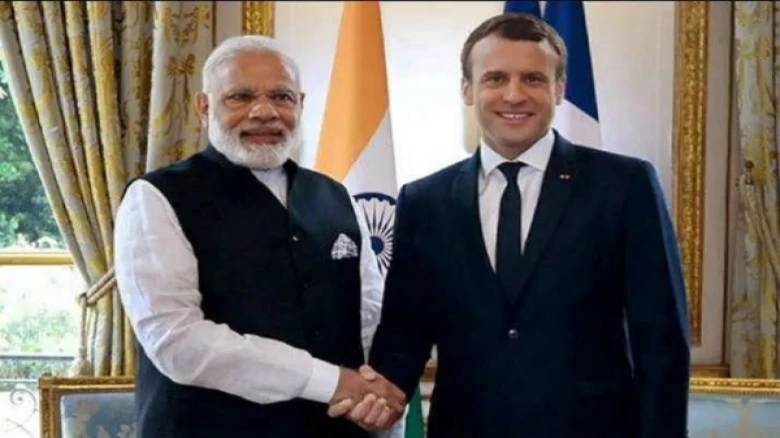Since being re-elected earlier this year, Mr Macron's trip to India is most likely his first formal visit.
Digital Desk: French President Emmanuel Macron is expected to visit India in "early 2023," with India's Science Minister Jitendra Singh pledging on Tuesday to resolve "technical, financial, and civil nuclear liability issues" surrounding proposed nuclear power projects in Jaitapur, Maharashtra, with French assistance.
According to a statement issued by the Ministry of Science and Technology on Tuesday, Chrysoula Zacharopoulou, Minister of State for Development, Francophonie, and International Partnerships, confirmed Mr. Macron's visit.
Ms. Zacharopoulou met Mr. Singh while attending a meeting of the International Solar Alliance, of which she is co-president.
This is presumably be Mr. Macron's first official visit to India since his re-election earlier this year.
Last year, the French corporation EDF filed a binding techno-commercial offer to the Nuclear Power Corporation of India Ltd. (NPCIL) to build six European Pressurised Reactors (EPRs) in Jaitapur. In May of this year, an EDF team visited India and spoke with NPCIL executives in depth.
As part of an umbrella nuclear contract negotiated with France in September 2008, the six projected nuclear power reactors of 1,650 MW would become the largest nuclear power generating plant with a total capacity of 9900 MW.
Mr. Singh stated in a statement on Tuesday that nuclear power was clean and environmentally benign, and that it had great potential to provide India's long-term energy security.
So far, nuclear power plants have generated around 755 billion units of electricity, saving approximately 650 million tonnes of CO2 emissions.
Despite a lengthy history of technological advancement, India has struggled to raise the amount of nuclear power in its energy mix significantly.
Despite the 2008 Indo-US nuclear pact, which allowed India to trade in civilian nuclear components and nuclear fuel without being a member of the Nuclear Suppliers Group, such trading has been modest.
One of the greatest barriers, according to reports, is India's civil nuclear liability laws, which require providers to pay for harm caused by a nuclear catastrophe. This has made access to nuclear components more difficult and hindered India's indigenous reactor development.
At the moment, Russia and France are the only countries involved in or committed to building nuclear reactors in India.

Leave A Comment